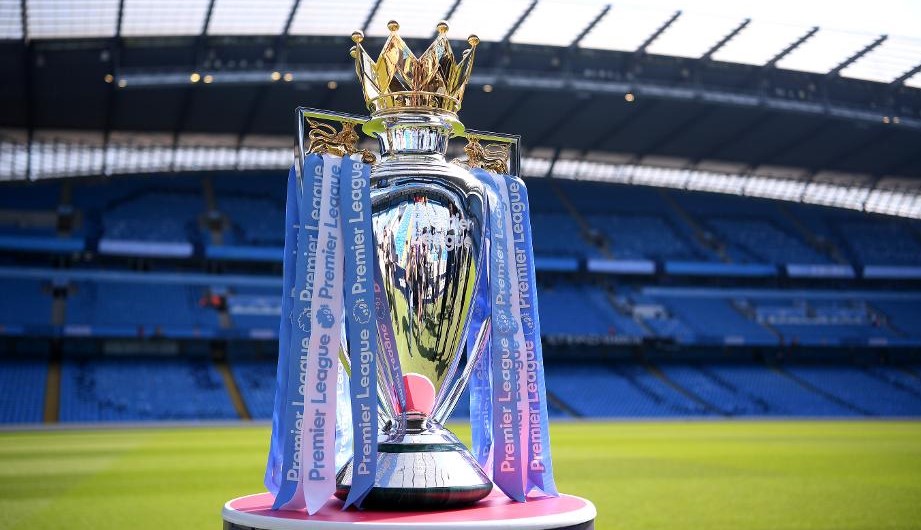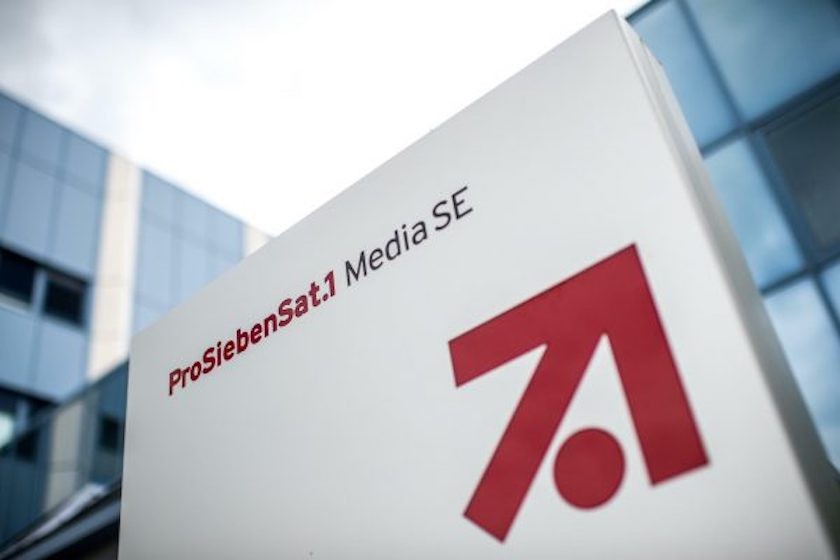Later this year, the Premier League rights go up for auction for the first time since 2018, when Sky, BT Sport and Amazon paid around £4.8 billion for the domestic broadcast packages. In 2021 that deal renewed for another three years, and now the 2025-28 rights are up for grabs.
The current setup generates £1.66 billion per year, down from £1.7 billion from the 2015 auction, so the Premier League could be looking to shake things up. VideoWeek weighs up the runners and riders potentially bidding for the prestigious football rights.
The incumbents
 Sky Sports currently holds four of the seven Premier League packages, giving the broadcaster 128 matches per season. It paid £3.57 billion in 2018 (14 percent less than it paid in 2015), but has since been taken over by telco giant Comcast, potentially giving Sky more cash to play with. In any case, the Premier League is integral to Sky Sports, which could probably afford to lose one of its weaker packages in order to stay in the game.
Sky Sports currently holds four of the seven Premier League packages, giving the broadcaster 128 matches per season. It paid £3.57 billion in 2018 (14 percent less than it paid in 2015), but has since been taken over by telco giant Comcast, potentially giving Sky more cash to play with. In any case, the Premier League is integral to Sky Sports, which could probably afford to lose one of its weaker packages in order to stay in the game.
 BT Sport has two packages (52 matches per season) and the backing of Warner Bros. Discovery (WBD), via a joint venture that will see the broadcaster rebrand as TNT Sports in July. This could even see the rights migrate to WBD’s Discovery+ at some point, but realistically the nascent JV is unlikely to have much impact in this round of bidding. For now, BT and WBD will be content to consolidate their market position as the home of live football, or at least a proportion of it.
BT Sport has two packages (52 matches per season) and the backing of Warner Bros. Discovery (WBD), via a joint venture that will see the broadcaster rebrand as TNT Sports in July. This could even see the rights migrate to WBD’s Discovery+ at some point, but realistically the nascent JV is unlikely to have much impact in this round of bidding. For now, BT and WBD will be content to consolidate their market position as the home of live football, or at least a proportion of it.
 Amazon Prime Video claims the remaining package, granting the streaming service 20 matches per season. Although reportedly looking to terminate its tennis broadcasting deal next year, the company remains committed to live sports, even developing a standalone sports streaming app. Amazon also shelled out £1.5 billion for Champions League rights last year, suggesting the tech giant is serious about soccer.
Amazon Prime Video claims the remaining package, granting the streaming service 20 matches per season. Although reportedly looking to terminate its tennis broadcasting deal next year, the company remains committed to live sports, even developing a standalone sports streaming app. Amazon also shelled out £1.5 billion for Champions League rights last year, suggesting the tech giant is serious about soccer.
 The BBC carries the Premier League highlights, headed up by Match of the Day, as part of a £211.5 million deal. Back in 2000, ITV snatched those rights for £183 million – and with its recent World Cup success, new ITVX service and heavy content investment, the commercial broadcaster could make a big play for the highlights. Then again, Match of the Day is a BBC institution, and the public service broadcaster is likely to bring it home.
The BBC carries the Premier League highlights, headed up by Match of the Day, as part of a £211.5 million deal. Back in 2000, ITV snatched those rights for £183 million – and with its recent World Cup success, new ITVX service and heavy content investment, the commercial broadcaster could make a big play for the highlights. Then again, Match of the Day is a BBC institution, and the public service broadcaster is likely to bring it home.
The contenders
 Viaplay only launched in the UK in November 2022 but holds the Premier League rights in nine European countries, including a £2 billion deal for the Nordic streaming rights. The Swedish company is reportedly challenging Sky Sports for the English Football League (EFL) rights, but whether its pockets are also deep enough for the Premier League is uncertain.
Viaplay only launched in the UK in November 2022 but holds the Premier League rights in nine European countries, including a £2 billion deal for the Nordic streaming rights. The Swedish company is reportedly challenging Sky Sports for the English Football League (EFL) rights, but whether its pockets are also deep enough for the Premier League is uncertain.
 DAZN looks set to mount a bid this year, with CEO Shay Segev calling the Premier League rights a “high priority” for the sports streaming service. Though technically a British company, DAZN has yet to secure a foothold in the UK market, having been disappointed by the lack of an auction in 2021, then losing out on plans to acquire BT Sport in 2022. In Europe it’s a different story, where DAZN holds Bundesliga, LaLiga and Serie A rights. The company is still trying to break even, but if it keeps pursuing the strategy of spending in order to grow market presence, the Premier League is the ultimate asset.
DAZN looks set to mount a bid this year, with CEO Shay Segev calling the Premier League rights a “high priority” for the sports streaming service. Though technically a British company, DAZN has yet to secure a foothold in the UK market, having been disappointed by the lack of an auction in 2021, then losing out on plans to acquire BT Sport in 2022. In Europe it’s a different story, where DAZN holds Bundesliga, LaLiga and Serie A rights. The company is still trying to break even, but if it keeps pursuing the strategy of spending in order to grow market presence, the Premier League is the ultimate asset.
 Apple TV+ might be more inclined to splash out, if their $2.5 billion Major League Soccer (MLS) deal is anything to go by. However, the Premier League will be reluctant to add another streaming service to the already fragmented rights layout. UK consumers who want to watch every Premier League match currently have to pay around £80 per month across BT, Sky and Amazon, making another subscription financially untenable – and risking an increase in piracy, where everybody loses. That said, if the League sticks with three broadcast partners, Apple could replace Amazon if the price is right.
Apple TV+ might be more inclined to splash out, if their $2.5 billion Major League Soccer (MLS) deal is anything to go by. However, the Premier League will be reluctant to add another streaming service to the already fragmented rights layout. UK consumers who want to watch every Premier League match currently have to pay around £80 per month across BT, Sky and Amazon, making another subscription financially untenable – and risking an increase in piracy, where everybody loses. That said, if the League sticks with three broadcast partners, Apple could replace Amazon if the price is right.
The outsiders
 YouTube recently paid a whopping $14 billion to stream NFL Sunday Ticket games – but unlike the Premier League, that package was not particularly valuable to broadcasters; Sunday Ticket was actually costing DirecTV around $500 million per year. The Google-owned company also has a deal in place with Sky Sports to host highlights, and the Premier League likely sees YouTube as an additional way of reaching younger viewers, rather than a destination in itself.
YouTube recently paid a whopping $14 billion to stream NFL Sunday Ticket games – but unlike the Premier League, that package was not particularly valuable to broadcasters; Sunday Ticket was actually costing DirecTV around $500 million per year. The Google-owned company also has a deal in place with Sky Sports to host highlights, and the Premier League likely sees YouTube as an additional way of reaching younger viewers, rather than a destination in itself.
 Facebook holds the Premier League rights in Southeast Asia, beating out BeIn Sports and Fox Sports Asia with a £200 million deal. But again, the content it already generates from the Premier League means the company does not need the expensive domestic rights. In theory the rise of augmented reality and Metaverse viewing parties could prompt the League to carve out some sort of digital season ticket, though in its current form the headset-dependent technology lends itself more to short clips than full games.
Facebook holds the Premier League rights in Southeast Asia, beating out BeIn Sports and Fox Sports Asia with a £200 million deal. But again, the content it already generates from the Premier League means the company does not need the expensive domestic rights. In theory the rise of augmented reality and Metaverse viewing parties could prompt the League to carve out some sort of digital season ticket, though in its current form the headset-dependent technology lends itself more to short clips than full games.





